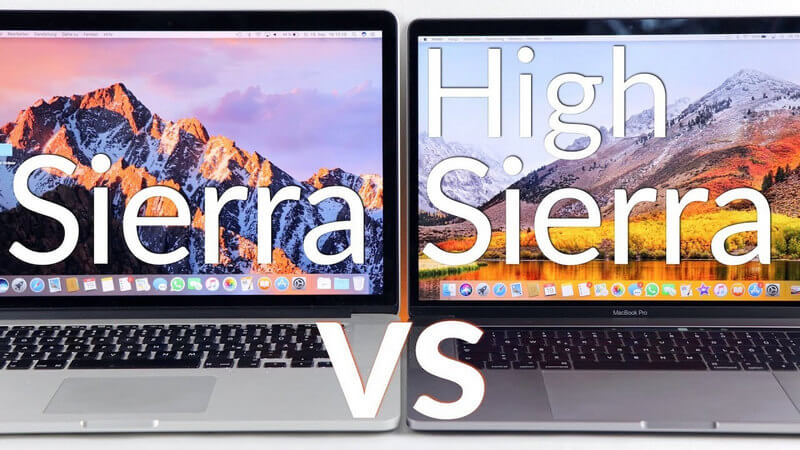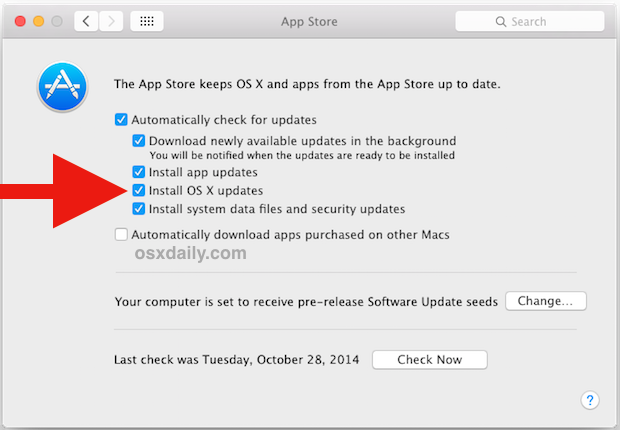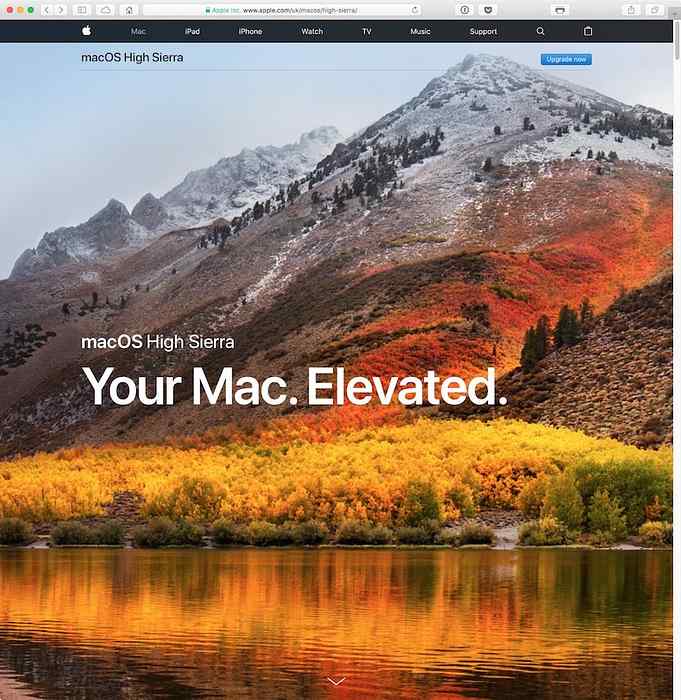To get the latest features and maintain the security, stability, compatibility and performance of your Mac, it's important to keep your software up to date. Apple recommends that you always use the latest macOS that is compatible with your Mac.

Find out how to upgrade to macOS Big Sur, the latest version of macOS.
Open that app from your Applications folder to start installing the operating system. MacOS Sierra 10.12 can upgrade El Capitan, Yosemite, Mavericks, Mountain Lion or Lion; OS X El Capitan 10.11 can upgrade Yosemite, Mavericks, Mountain Lion, Lion or Snow Leopard; OS X Yosemite 10.10 can upgrade Mavericks, Mountain Lion, Lion or Snow Leopard. This needs to be set to Mac OS X 10.7. This option is not available by default, the OS X Unlocker we ran earlier has exposed this option. If for some reason you don’t see this option, look at re-running the OS X Unlocker steps, it needs to be Run as Administrator. Now power on the Virtual Machine using Power on this virtual machine. The App Store only shows updates for the OS you are using at the moment, in your case Yosemite 10.10.5. If you want to go to another newer OS that is called an upgrade. This can be done through the App Store using the following link. How to upgrade to macOS High Sierra - Apple Support. High Sierra is the last/ newest OS your Mac can use.

Check compatibility
If a macOS installer can't be used on your Mac, the installer will let you know. For example, it may say that it's too old to be opened on this version of macOS, or that your Mac doesn't have enough free storage space for the installation.

To confirm compatibility before downloading, check the minimum requirements for macOS Catalina, Mojave, High Sierra, Sierra, El Capitan or Yosemite. You can also find compatibility information on the product-ID page for MacBook Pro, MacBook Air, MacBook, iMac, Mac mini or Mac Pro.
Make a backup
Before installing, it’s a good idea to back up your Mac. Time Machine makes it simple, and other backup methods are also available. Find out how to back up your Mac.
Download macOS
It takes time to download and install macOS, so make sure you're plugged into AC power and have a reliable Internet connection.
Safari uses these links to find the old installers in the App Store. After being downloaded from the App Store, the installer opens automatically.
- macOS Catalina 10.15 can upgrade Mojave, High Sierra, Sierra, El Capitan, Yosemite or Mavericks
- macOS Mojave 10.14 can upgrade High Sierra, Sierra, El Capitan, Yosemite, Mavericks or Mountain Lion
- macOS High Sierra 10.13 can upgrade Sierra, El Capitan, Yosemite, Mavericks or Mountain Lion
Safari downloads the following older installers as a disk image named InstallOS.dmg or InstallMacOSX.dmg. Open the disk image, then open the .pkg installer inside the disk image. It installs an app named Install [Version Name]. Open that app from your Applications folder to start installing the operating system.
- macOS Sierra 10.12 can upgrade El Capitan, Yosemite, Mavericks, Mountain Lion or Lion
- OS X El Capitan 10.11 can upgrade Yosemite, Mavericks, Mountain Lion, Lion or Snow Leopard
- OS X Yosemite 10.10can upgrade Mavericks, Mountain Lion, Lion or Snow Leopard
Install macOS
Follow the onscreen instructions in the installer. It may be easiest to start the installation in the evening so that it can be completed overnight, if needed.
If the installer asks for permission to install a helper tool, enter the administrator name and password that you use to log in to your Mac, then click Add Helper.
Please allow the installation to finish without putting your Mac to sleep or closing its lid. Your Mac may restart, show a progress bar or show a blank screen several times while macOS and related firmware updates are being installed.
Learn more
You may also be able to use macOS Recovery to reinstall the macOS you're using now, upgrade to the latest compatible macOS or install the macOS that came with your Mac.
Apple OS X El Capitan beta was first released to developers in July 2015 and was released to the millions of Apple consumers worldwide September of 2015, following several beta releases. This version of the Apple Mac OS X marks a significant milestone in Apple Mac OS history for many reasons. It was the 12th major release of the Mac OS X line, since the introduction of the new brand in 2002 by Apple from its previous product line of Mac OS.
Upgrade Os X Yosemite To Sierra
Download El Capitan OS X is also significant since it’s the last version of Apple Mac OS X releases as its successor Sierra was released in the year 2016 under the brand macOS. El Capitan is a rock formation found in Yosemite National Park, which gives out the meaning that the new release is a solid version of its predecessor, Yosemite. The naming convention to use important landmarks of Northern California started with the Apple release of Mavericks.
At the time of release, El Capitan was promoted as a significant release by Apple similar to how they promoted Mavericks and Yosemite upgrades which were the predecessors of El Capitan.
Brief Guide For Download El Capitan
In this article, we’ll also discuss few things that you should do before you upgrade your OS to the new Download El Capitan version in order to make sure your computer is all ready for the new upgrade including whether your Mac is compatible both in terms of hardware and software. There we will discuss the minimum system requirements and supported Mac devices released in the past.

Can Yosemite Be Upgraded To Sierra
Installation Methods For Download El Capitan
1. Download El Capitan Mac OS X from scratch while upgrading the current Mac OS version
The new Apple El Capitan supports two installations methods. As in the case of many other operating system installations, Apple El Capitan also provides an option to upgrade from your current OS version or the option to install the new download El Capitan Mac OS X from scratch. The default method which is the upgrade installation option will try to install OS X El Capitan to your Mac device while protecting your user data and app data. This is currently the most frequently used method of upgrading to the new version of Mac OS X and also the easiest too. If your Mac computer is in very good shape and running smoothly, it is recommended to install using this method.
2. Download El Capitan and install fresh the Mac OS without upgrading current Mac OS version
The second method of installations is the clean install method. It basically erases the entire content of your chosen drive and installs a fresh, smooth version of the new operating system which is download El Capitan Mac OS X in this case. This would mean no older versions of the Mac OS X, system applications and user data all will be wiped out with a clean install. This is an excellent choice to test an operating system on a separate disk drive or a partition in cases where you have had prevailing software issues on your computer which you have been unable to fix. Therefore when these issues become a major headache for you, your best option is to perform a clean install of the OS X – El Capitan. Although you may have to let go of your apps and their data, it becomes a smaller price to pay for when compared to running the system in its current state with a truckload of software issues.
The upgrade install option is pretty straightforward. Therefore in this article, we will only discuss the download El Capitan andclean installation of El Capitan Mac OS X.

Download El Capitan iso and dmg installer
